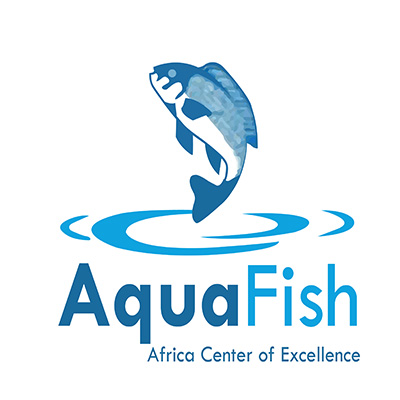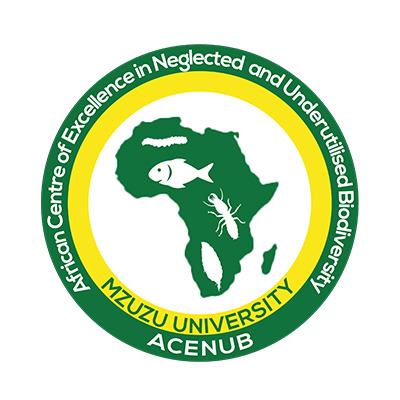Sustainable Use of Insects as Food and Feeds (INSEFOODS)
Center Title and Acronym: The Africa Center of Excellence in Sustainable Use of Insects as Food and Feeds (INSEFOODS)
Host University and Country: Jaramogi Oginga Odinga University of Science and Technology (JOOUST), Kenya
Center Website Address: https://insefoods.jooust.ac.ke
Center Director and email address: Prof. Adrian Mukhebi; amukhebi@jooust.ac.ke; amukhebi@hotmail.com
Primary Thematic Discipline of Center: Food Security
Brief Description of Center:
INSEFOODS is one of the 24 competitively selected centers at universities in eastern and southern Africa under the World Bank’s Eastern and Southern Africa Higher Education Centers of Excellence Project II (ACE II). The goal of INSEFOODS is to achieve long-term food and nutritional security by using insects as a cost-effective, reliable and sustainable source of protein and other nutrients for food and feeds. To achieve this goal, INSEFOODS’ strategy is to develop and offer high quality regional and internationally accredited masters, doctoral and short courses programs in food security and sustainable agriculture with insects for food and feeds as the entry point, and build national, regional and international partnerships and collaborations in the implementation of the strategy. The educational programs will involve teaching, research, product development and commercialization, and student and staff exchanges in different disciplines related to insects as food and feeds across Africa. INSEFOODS is based at Jaramogi Oginga Odinga University of Science and Technology (JOOUST), a public institution located in Western Kenya along the shores of Lake Victoria.
Key Objectives and Expected Outcomes:
- Build human resource and infrastructural capacity for research, training and technology development and transfer on insects as food and feed;
- Build sustainable local, regional and international partnerships and networks for research, development and training on insects as food and feed;
- Develop a biodiversity repository of insects for food and feed in the region;
- Develop insect technology incubation and skills transfer hub for teaching and research.
The Expected Outcomes are:
- Strengthened Education Capacity Excellence and Development Impact in food & nutrition security;
- Strengthened Research Capacity Excellence in food & nutrition security;
- Attracted Regional Faculty and Students in research and training in food & nutrition security;
- Developed National, Regional and International Partnerships & Collaborations in research, technology development and commercialization in food and nutrition security;
- Developed Good Management & Governance Structure for the Center;
- Developed a Sustainability Strategy for the Center.
Major Accomplishments to Date:
- Institutional Readiness achieved;
- INSEFOODS institutionalized within JOOUST;
- Implementation Team constituted;
- Center office, laboratory and field research facilities allocated;
- An M.Sc. and a Ph.D. program in food security & sustainable agriculture developed & undergoing accreditation;
- Short-Courses Training Manuals in edible insects farming developed;
- Inception Workshop with partners held (5th-6th October 2017) & MOUs being developed;
- Strategic Plan developed;
- Regional ACE II Project activities participated in.
Primary Regional and Global Partners:
Institution | Country | Potential Role/collaboration |
| Kenya | Research, student placement |
| Denmark | Ph.D. Student & Faculty exchanges; short courses |
| Kenya | Fish Feeds; market for our feeds |
| Kenya | Repository development; insect characterization |
| Kenya | Student exchange; short courses |
| Uganda | Insects for food: Community mobilization for outreach; applied research (production & nutrition) |
| Uganda | Insects for feeds: Student placement; commercial production of Black soldier fly |
| France | Biotechnology Research; Gama modelling for insect populations; termite research; technology transfer from lab to lab, and lab to field |
| Kenya | Community mobilization for field research & outreach |
| Uganda | Short courses; student/staff exchanges |
| Egypt | Publications |
| Netherlands | Community mobilization & outreach |
Senior Faculty:
Name | Email Address | Research Area |
| Animal Science | |
| Agricultural Economics | |
| Consumer Economics | |
| Entomology | |
| Entrepreneurship | |
| Agricultural Extension | |
| Crop Science | |
| Horticulture | |
| Curriculum Development | |
| Business | |
| Soil Science & Climate Change | |
| Biotechnology | |
| Crop Science | |
| Land Use Economics | |
| Social Science-Anthropology | |
| Ecology-Conservation | |
| Modelling | |
| Biochemestry | |
| Economics | |
| Innovation – technology |









